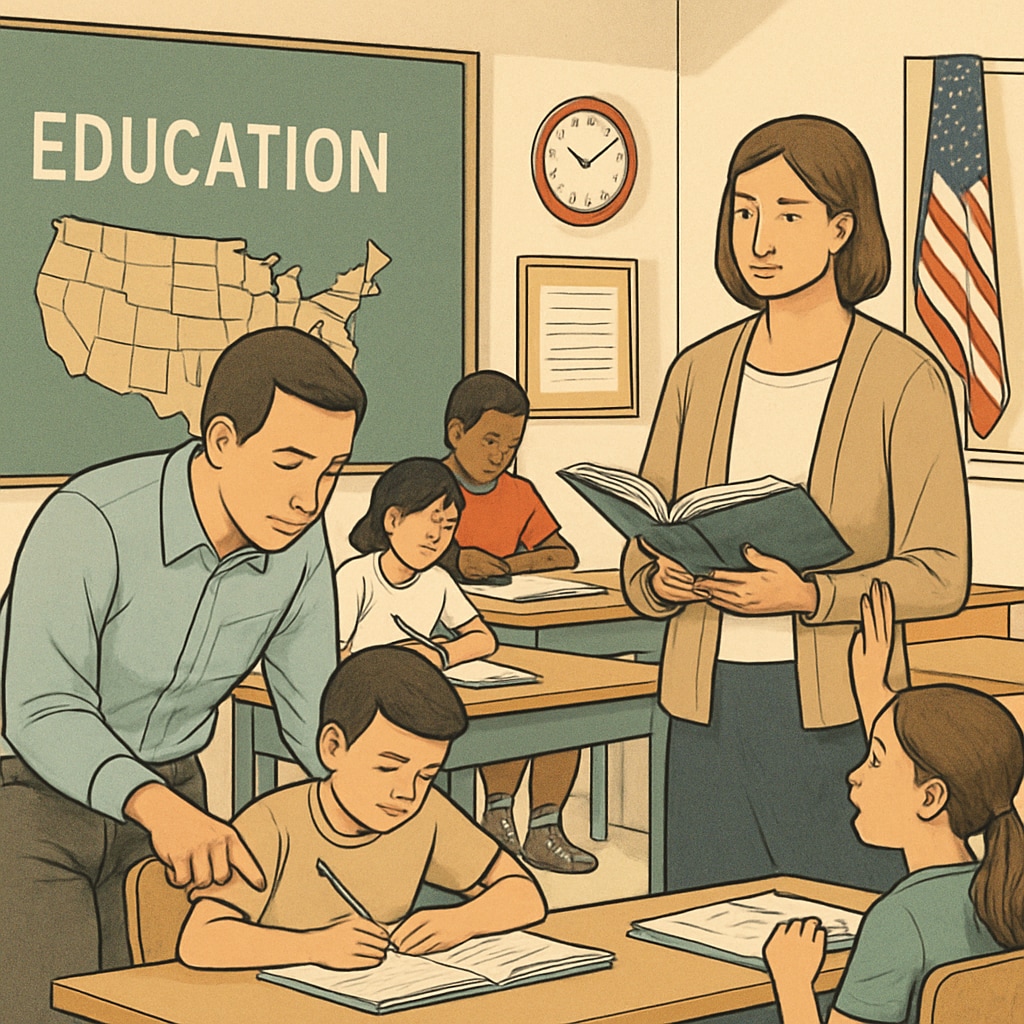Oklahoma recently implemented a controversial policy requiring political inclination tests for out-of-state teacher applicants, raising concerns about ideological screening. This move has sparked heated debates about the motivations behind the policy and its implications for the education system. Amid an already polarized political climate, questions about maintaining education neutrality and avoiding political interference have become increasingly relevant.
Why Has Oklahoma Introduced Political Screening for Teachers?
The introduction of political inclination tests for teacher applicants in Oklahoma has left many wondering about its underlying rationale. Proponents argue that such measures are necessary to ensure educators align with the values and principles upheld by the state. They claim these tests prevent the infiltration of divisive ideologies that could influence young minds in the classroom. However, critics view this policy as a step toward politicizing education, potentially discouraging qualified teachers from applying due to fears of ideological discrimination.
In addition, this policy reflects broader trends in the United States where educational institutions increasingly find themselves at the center of political debates. Topics such as curriculum changes, banned books, and parental involvement in schooling have turned classrooms into battlegrounds for ideological conflicts. Oklahoma’s decision seems to amplify this dynamic, further blurring the lines between education and politics.

Potential Impacts of Ideological Screening on Teacher Recruitment
This policy could significantly impact teacher recruitment in Oklahoma. First, it risks alienating out-of-state educators who may perceive the political inclination tests as intrusive or discriminatory. As a result, the state may face challenges in attracting skilled and experienced teachers, exacerbating existing staffing shortages. According to Britannica’s overview of education policies, teacher recruitment already struggles in many states, particularly those with restrictive or controversial measures.
Moreover, ideological screening may create a chilling effect within the profession. Teachers who fear ideological scrutiny might avoid discussing sensitive topics in the classroom, even when such discussions are essential for fostering critical thinking and open dialogue among students. This could hinder the holistic development of young learners and compromise the quality of education.
Another concern is the precedent it sets for other states. If Oklahoma’s policy gains traction, similar measures could emerge elsewhere, deepening the politicization of education nationwide. This domino effect could further divide communities while detracting from the core mission of education: to equip students with knowledge and skills, irrespective of political agendas.

Balancing Education Neutrality and Political Influence
The Oklahoma case underscores the delicate balance between maintaining education neutrality and addressing political influence. While states have legitimate interests in shaping their education systems to reflect community values, imposing explicit ideological tests risks alienating both educators and students. As noted by Wikipedia’s definition of neutrality, true impartiality requires avoiding undue influence from external factors, including political ideologies.
To strike this balance, policymakers could consider alternative measures, such as focusing on teacher qualifications, classroom performance, and adherence to professional standards rather than personal ideological beliefs. Additionally, fostering open dialogue between educators, parents, and policymakers can create more inclusive solutions that address community concerns without compromising education quality.
Ultimately, prioritizing education neutrality ensures the classroom remains a space for learning and growth, free from undue external pressures. As a result, students benefit from diverse perspectives while gaining critical thinking skills essential for navigating complex societal issues.
Readability guidance: Short paragraphs and clear transitions enhance readability. Lists and examples simplify complex ideas, while avoiding excessive passive voice keeps the content engaging. Images strategically placed near discussion points reinforce visual understanding.


